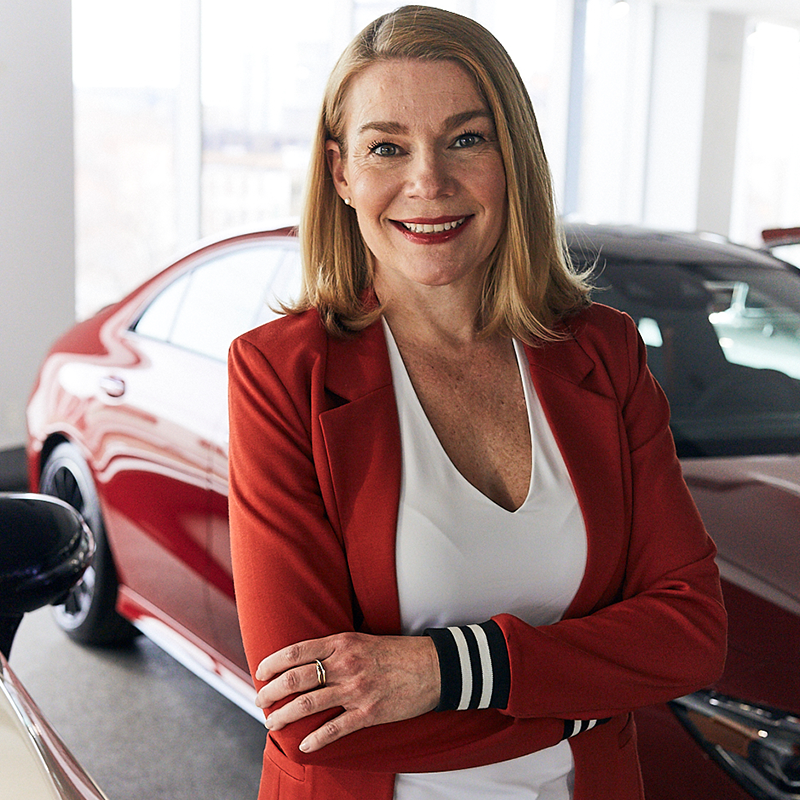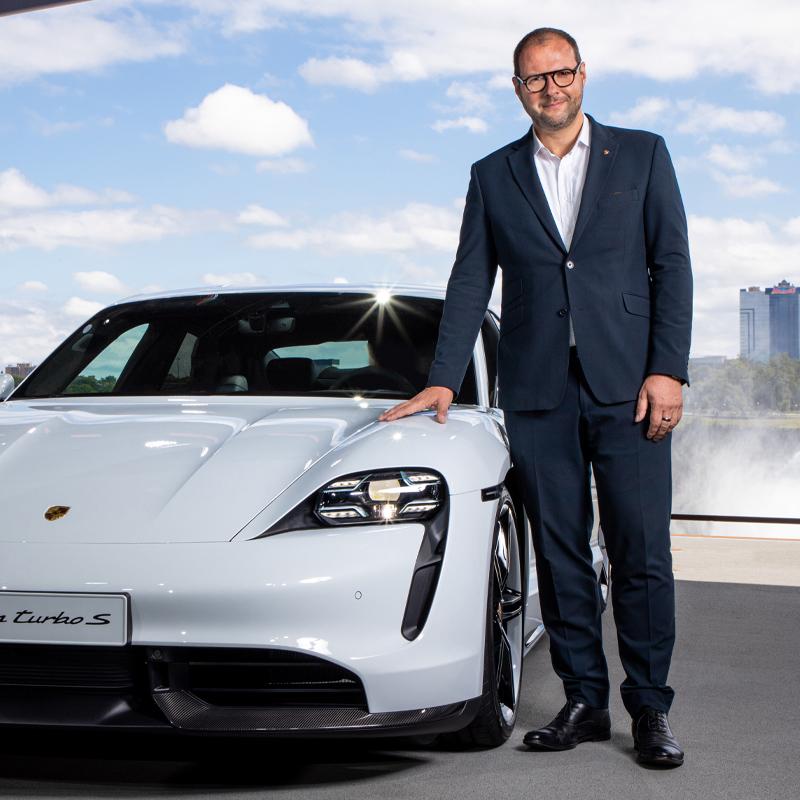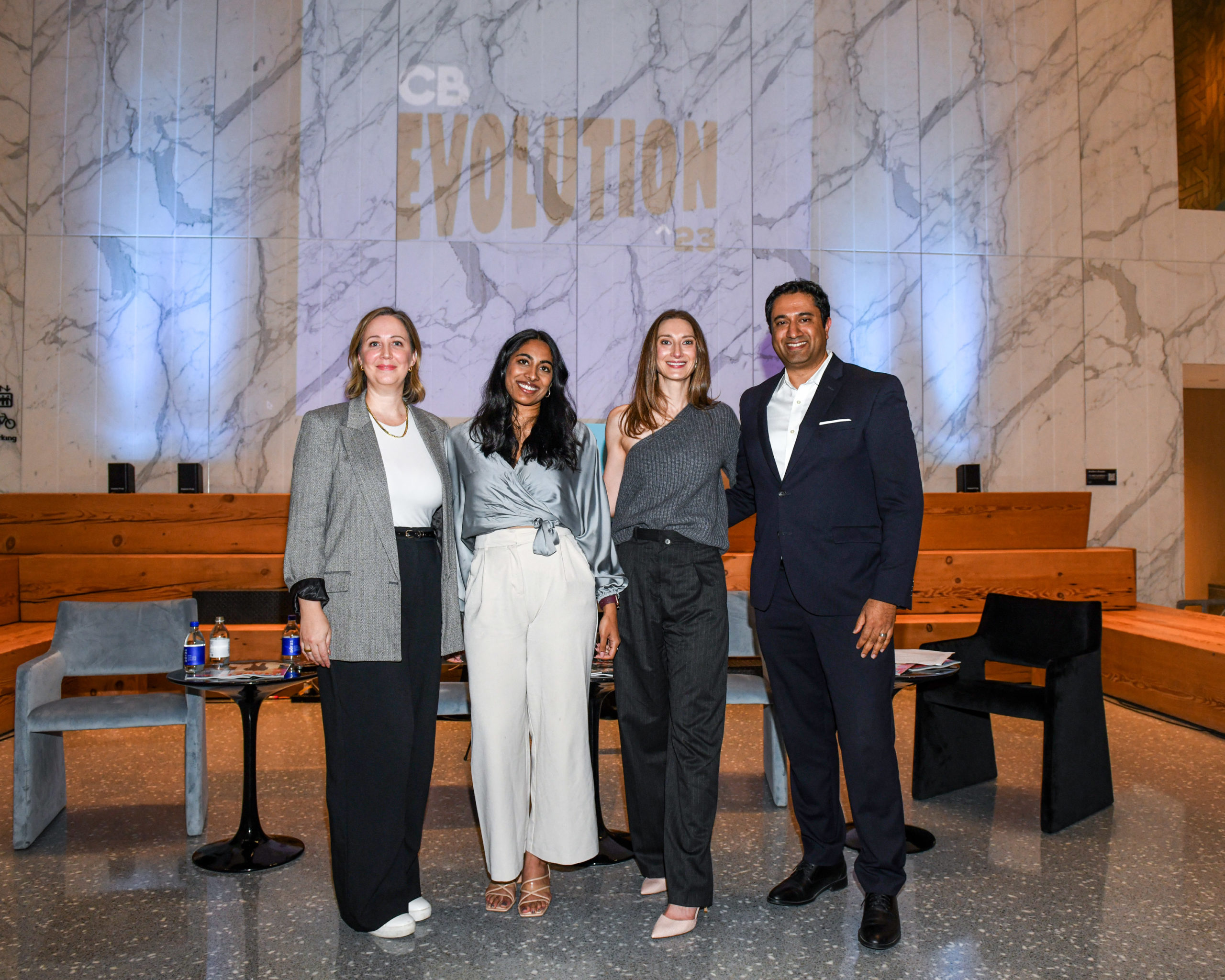Mercedes-Benz Canada CEO Eva Wiese on the Future of the Auto Industry

To say that Eva Wiese was born for the role of president and CEO of Mercedes-Benz Canada would be an understatement. “I’ve been in love with these cars since I was a two-year-old girl,” she says. Her appointment as the first woman to hold the position came in January 2021, a marker of her two-decade-long career where she garnered experience in retail, brand marketing and customer services across locations in Germany and the United States.
But this isn’t the first time Wiese has broken gender barriers in her field: She was the first woman lead of a Mercedes-Benz corporate retail region in 2019, and she spent three years as the first woman in a leadership role with the Mercedes-AMG sub-brand as head of marketing and product management. Even more so than the destinations she’s reached throughout her journey at Mercedes-Benz, what has truly positioned Wiese as a leader in her field is the real-world sensibility she’s carried with her.
As this month’s CB leader-in-residence, Wiese discussed with Canadian Business what automotive innovation means to her, the importance of building a culture of purpose and what sets the Canadian automobile market apart.
What drives you as a leader and decision maker?
My purpose in joining Mercedes-Benz stemmed from my lifelong love for these cars. I always wanted to work for the company and be able to influence such an important line of products. For me, this work isn’t about being a specialist in one topic, but about enabling others to feel just as inspired as I do. As I’ve evolved in my career, my focus has shifted towards decision making as a means of improving a culture and creating a psychologically safe environment where creativity can thrive and translate into great customer experiences.
What do you find most inspiring about your field?
One of the main reasons I was drawn to this industry is because I don’t believe there are many other products, like automobiles, that can be so sophisticated and complex while at the same time so emotional. Our vehicles provide individual mobility, and I consider that something of very high value. I’m inspired by the fact that as much as the automobile has shaped our society, customer behaviour has equally shaped the automobile. For example, the technology we adopt into our models is constantly evolving based on customer needs—it makes this field of work so interesting. It never gets boring,
What technologies come to mind when you think about the ways automotive innovation is changing the world?
I think autonomous driving will be one of those ventures and electric cars, of course. Though, I’m truthfully more in love with the small specs that make our lives easier. Every day, before I even leave the house, for example, I can send the address of where I am driving to my car. This way, once I jump in and maybe I am running late, I turn the ignition and the head unit displays my route. I believe Mercedes is quite well-known for small details like this, details that completely shape our experiences as drivers.
How does the Canadian market differ from that of Europe or the United States?
As the second-largest country in the world, distance and climate play a big part in customer behaviour and needs in Canada. When we consider the questions that customers are asking when it comes to electric mobility range, it has a different meaning here in Canada. All of our products in the Canadian market, for example, are proven [to withstand] temperatures of up to -40 degrees Celsius—no one is asking us for this in Germany or Italy, for example. Canada is also the country with the second-highest Mercedes-AMG share in the world. People here acknowledge and appreciate the technology.
How do you believe innovation will shape the future of Canada’s automotive industry?
The main influencing factors will be autonomous and electric driving, no doubt. It’s going to change more than just the products we choose, but how we navigate their uses. Today, not many people consider their distance to the nearest fueling station, but as electric advancements are adopted by the masses, it’s important that we deliver both great electric technology and infrastructure. In January, we introduced our first electric vehicle to the Canadian market. It was very important for us in doing that, that we also delivered 9,000 electric charging stations for our customers. We call it an ecosystem, and it’s just as important as the technology itself. I expect the ecosystem to change a lot about how the industry operates.
Are there challenges that come with building this ecosystem?
You definitely need to do some groundwork first. We make sure that we have the right partners on our side to build up this infrastructure—a good charging network will be crucial to the success of this. We also need to consider, as other companies adopt electric cars, will all of our customers be using the same charging technology? It requires a lot of planning and transparency.
In what ways do you hope your appointment at Mercedes-Benz Canada will open doors for a new generation of women leaders?
Frankly speaking, I’m looking forward to the day when it is no longer a headline. Though, since it still is, I hope that my appointment will encourage more young women to join the industry. Today, we have more inspiring women than ever working at Mercedes-Benz. They are also the role models for future leaders. With that being said, I’m also looking to the future, where our celebration of diversity means more than just gender, age or race.
Have there been any surprises or learning curves that you’ve experienced as you’ve settled into this new role?
Several things! Adapting to Canadian culture, which is much different than German culture, is one significant learning curve. In addition to this, onboarding as a CEO in a different country, let alone remotely, was a very big challenge. Given the time, it was of course not a choice, but we made it work.
How do the skills you’ve acquired in retail translate on a corporate level?
I truly believe that changing perspectives helps you grow in the greatest ways. Since I’ve worked as a dealer in the retail space, I understand the challenges that the retailers face and what type of support they need. This relatability from both parties also helped me in terms of earning credibility in my first CEO role. Most of the dealers were open and happy to see me in this position because they know that I am one of them, and really understand their business.
What are the most important steps a brand can take to build customer relationships?
The history of a brand is your foundation of trust. It’s important to acknowledge the history of the brand in every decision you make, and live up to your promises. I’m incredibly proud to be able to work for the inventor of the automobile, but on the other hand, our inspiration at Mercedes-Benz Canada is to shape the future of the automobile. It’s about delivering consistent experiences with a clear vision.
Are there fundamental values you believe every leader should have?
I think a leader should always be there to support the team, but also to challenge the team and inspire them. I try to do this with transparency, empathy and with purpose. I’ve noticed that especially working with younger people, the principle of purpose gains more importance every day. In an exchange with our employees, we try to deliver an inspired work model, which is made in collaboration with all of our employees. Maybe it is not something that everyone would expect from a company that is so large, old and traditional, but I consider it a non-negotiable part of how I choose to work as a leader.




![CB-800x800_0000s_0006_IMG_1010[2]](https://canadianbusiness.com/wp-content/uploads/2021/10/CB-800x800_0000s_0006_IMG_10102.jpg)




